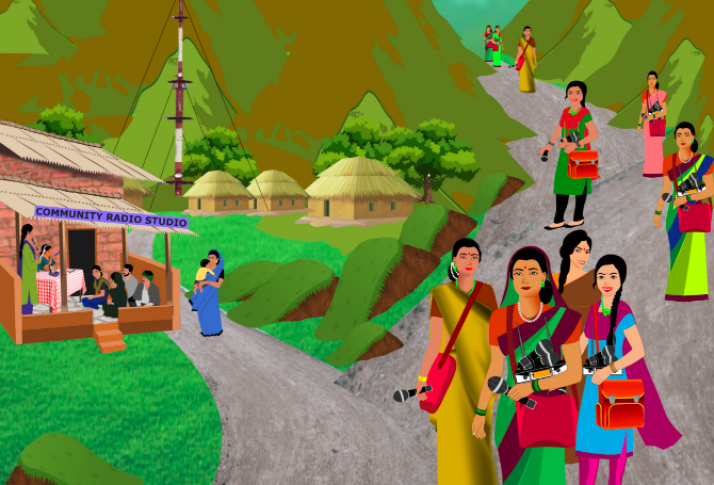
How have women found self-expression through community radio as a low-cost technology while enabling local communities to voice themselves during the pandemic? The experiences and learnings from eight initiatives in India are the focus of a new research report that IIT Bombay will launch on 1 February at 10:00 UTC.
The online launch of this unique publication is taking place on the same day that the country celebrates the 18th anniversary of the launch of Anna FM, India's first community radio station.
Speakers and panellists
The launch event of the study "Community radio enabling women’s empowerment in remote communities of India" will be honoured by the participation of Ms. Neerja Sekhar, Additional Secretary, Ministry of Information and Broadcasting of the government of India, as the keynote speaker. She will be joined by Dr. R. Sreedher, a pioneer of the community radio movement in India, and Grace Githaiga, the co-convenor of the Kenya ICT Action Network (KICTANet), in the first session of the launch. In the second session, the women from the community radio initiatives interviewed for the research will join a panel discussion to share their experiences.
Join the dialogue here on 1 February at 10:00 UTC (15:30 IST).
About the research report
In spite of the remarkable growth in communication across the country in the past few decades, when it comes to media and communication, rural India is still in the dark. The mainstream media devotes very limited or minimal airtime to cover issues related to rural areas. Considering that 70% of the Indian population lives in rural India, community radio plays a huge role in bridging the communication gap.
The study is situated in the broader context of women and technology usage, aiming at an understanding of how community radio as a low-cost technology has been instrumental in empowering women in remote rural communities of India. The study focuses on women-led community radio stations in different parts of India, which are primarily managed by women radio broadcasters and station managers.
The objective of this study is twofold: firstly, to understand how women have found self- expression through community radio as a low-cost technology and how, in turn, it has helped them serve the community and empower other women in the community to find their voices. Secondly, this study examines how radio stations in remote rural locations have enabled local communities to voice themselves, which in turn has facilitated the flow of information between the local authorities and the people during the pandemic.
These case studies substantiate that women have overcome various societal and cultural barriers to associate themselves with community radio as a technology. These women act as agents of change in their communities and are followed as role models for other women and girls.
The research and the resulting report are an initiative of the Spoken Tutorial Project, IIT Bombay and part of the "Connecting the Unconnected: Supporting community networks and other community-based connectivity initiatives" project implemented by the Association for Progressive Communications (APC) in partnership with Rhizomatica, with funds from the Swedish International Development Cooperation Agency (Sida).